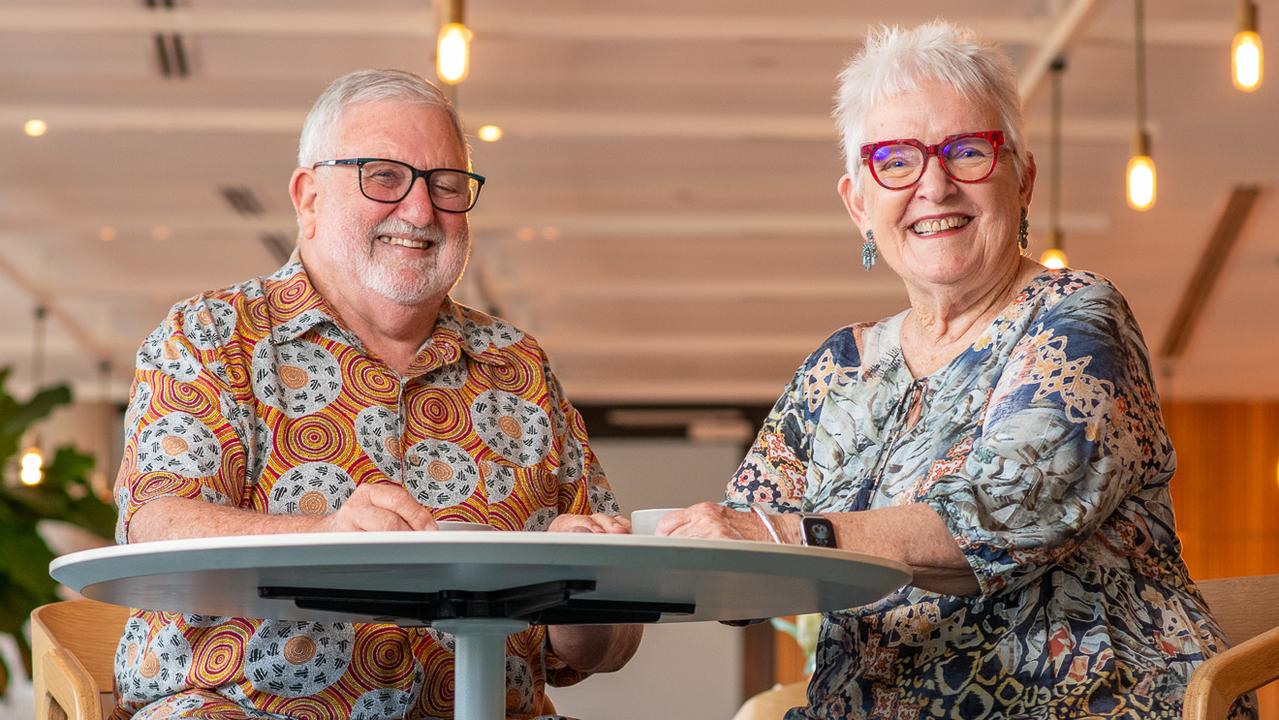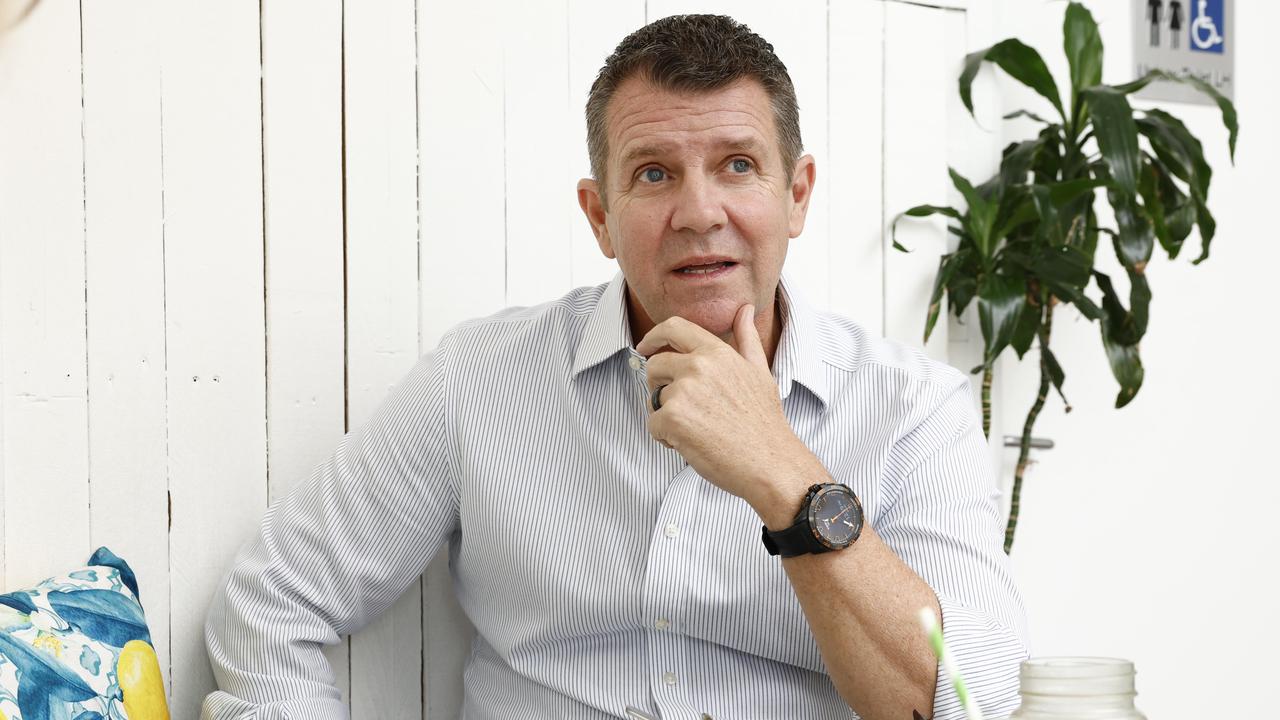Exclusive interview: Erin Molan opens up about horrific abuse she suffered from a man she dated
It’s taken Erin Molan years to be able to publicly discuss her harrowing story of brutal abuse at the hands of a man she dated. She’s doing so now in the hope of helping others in similar situations to feel ‘less alone, less ashamed, less scared’.

NSW
Don't miss out on the headlines from NSW. Followed categories will be added to My News.
For Erin Molan there are so many “worst” moments, but the one she remembers most acutely is the night she had her head kicked in.
She knew it was coming. Furious texts from the man she was dating told her something was brewing.
As she waited for him to come to her home she hoped this time would be different.
But it wasn’t.
“He came in drunk and dragged me out of bed and started stamping his foot into my head over and over and over,” she recounts.
“I was lying on the floor screaming, and normally if I screamed really loudly he would stop because neighbours would hear.
“But that time he just kept going and going and it felt like my skull was going to crack open.
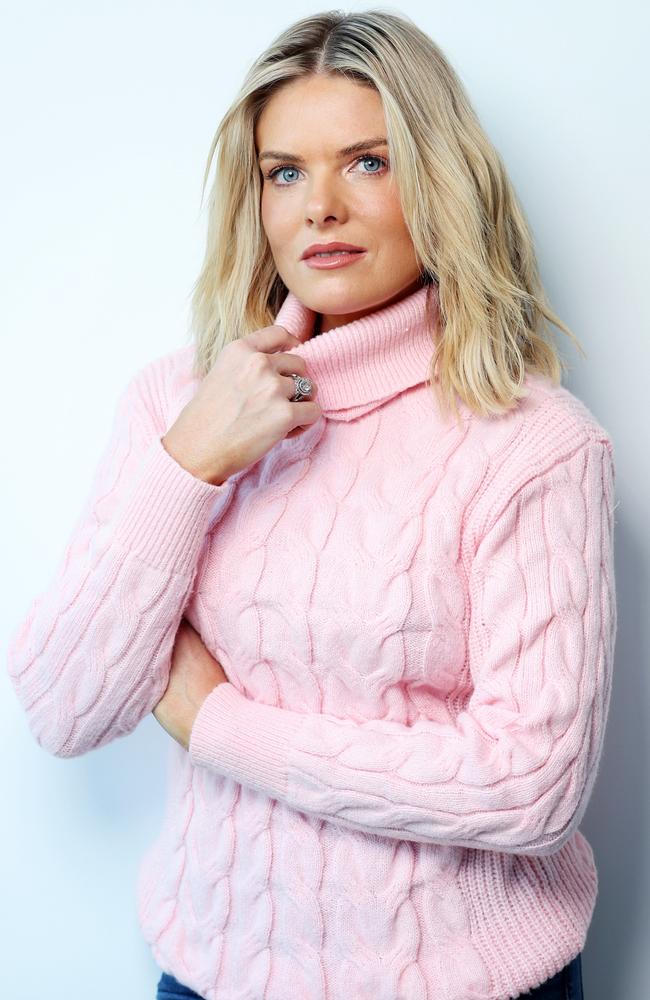
“I remember thinking ‘He’ll do something. He’ll smack me, he’ll push me into a wall, he’ll elbow me, he’ll punch my leg and then he’ll stop when I get really distressed’.
“That was kind of the pattern. But for some reason that night he kept going.”
There were plenty of episodes like this.
“One time he smashed a bottle over my head,” she says. “Another time I was terrified he’d throw me off a balcony.
“Once I ran to hide in my car and he got a rubbish bin and started smashing it against the windscreen and I feared I would be killed by glass shattering over me.
“Another time he covered my face with a pillow so I couldn’t breathe. I was crying for my mum. I really thought he would kill me.”
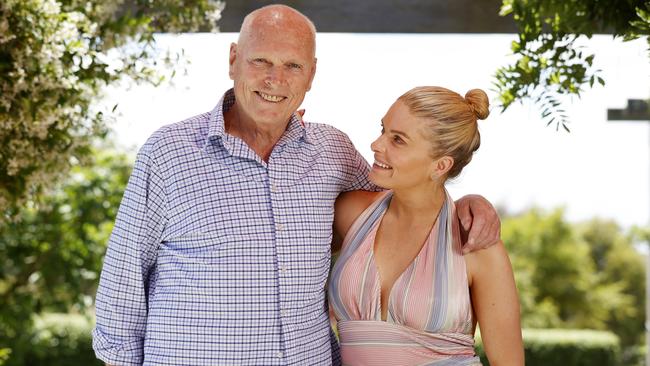
This is the first time Molan has spoken about her harrowing experiences with domestic violence. It’s taken her years to be able to tell her story but, as she tells me in a candid, tear-filled interview, it’s finally time.
She couldn’t do it while her beloved dad, Senator Jim Molan, was alive because she didn’t want to break his heart, but now she wants others to know what she went through.
The epidemic is now too big, too entrenched for her not to use her voice.
As she reasons, she can’t ask others to talk about deeply personal issues on her 2DayFM radio show or Sky News program and not do the same herself.
“I’m not sharing my story because I want to. My preference would be for this part of my life to never be shared, but with every single death I see in this space a part of me wonders whether I could have made a difference,” she says.
“Could my experience have made these beautiful, innocent women feel less alone, less ashamed, less scared and could that have been the tiny thing that may have empowered them to ask for help, the thing that might have helped to save their lives,” she says.
“I have a voice now … they don’t.”
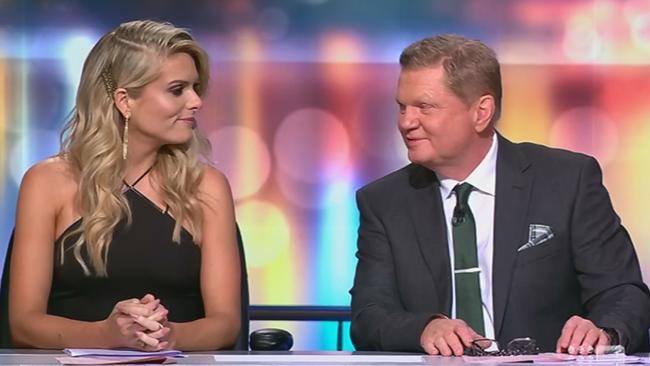
As she sits on the sofa at the home she shares with her six-year-old daughter, the broadcaster and Sunday Telegraph columnist cries as she finally reveals the secret pain she’s lived with for years.
To the outside world she is the accomplished TV star, the funny and gutsy public figure who has a direct line to politicians and celebrities, and a forthright advocate for online trolling and bowel cancer screening.
But when it comes to domestic violence, Molan has struggled to discuss the personal experiences that caused her to fear for her life.
“When you ask me about the worst time, there are just so many times,” she reveals.
“Times when the police would turn up, times when I’d end up in hospital lying about what had happened, times when a colleague would see the bruises and ask what had happened.”
Even though police eventually interviewed her about the abuse which happened many years ago, she wouldn’t make an official statement.
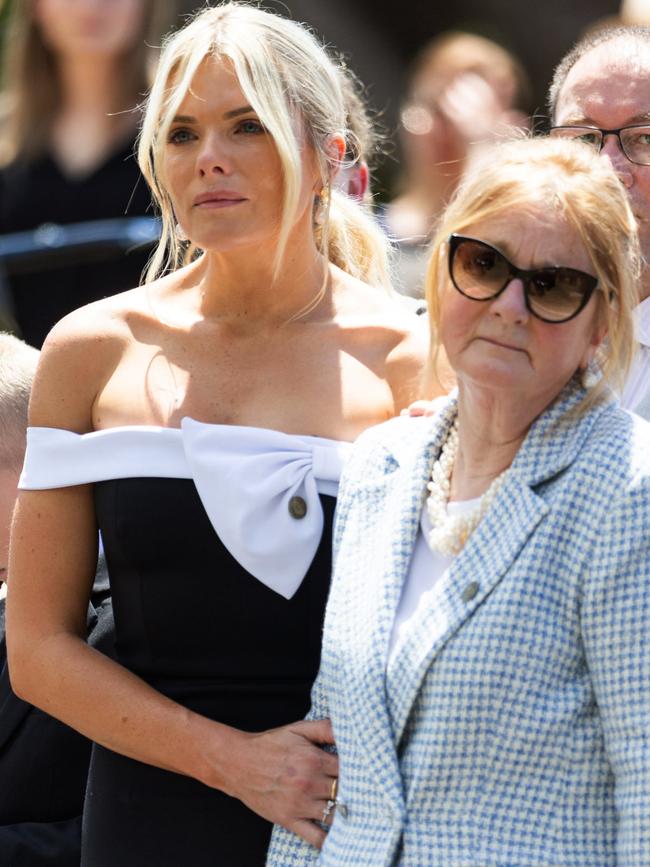
“I loved him,” she says quietly. “I thought I needed him and to be brutally honest I didn’t want the relationship to end. I didn’t know how to function without him. It had become such a conditioned part of my life. Towards the end the physical assault happened almost nightly but I kept thinking that at some stage he would get help.”
Molan understands why other women don’t leave abusive partners and she wants you to know that she sees you. She knows those feelings.
“The times I felt safest was straight after an event when he’d comfort me,” she explains. “The same person who would punch me and kick me or stomp my head into the ground or punch me in the stomach or pull my hair in the shower would then comfort me, and that was the safest, the most-loved feeling in world.
“The only sense of security and safety I had was in the arms of the person who was hurting me. You are so battered psychologically that you don’t have the strength, the energy, the confidence to do anything other than continue in this cycle that one day may lead to your death.
“You’re so in love, you’re so entrenched that the thought of even trying to escape just feels impossible.”
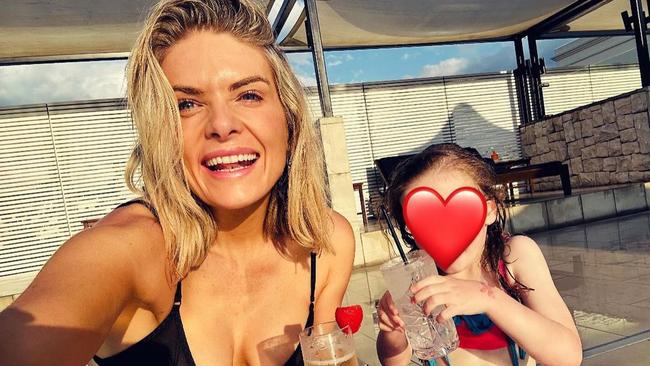
While she, a friend or neighbours called the police many times, Molan would try to cover up the abuse.
“I remember so many instances where I wanted the police to take the element of choice away from me because I could never say anything that would hurt him. I was begging inside my head for them to just help me.
“My whole thing was trying to hide what was happening because I didn’t want him to get in trouble.”
She also kept it from her parents because she knew they’d pressure her to leave him.
But others were noticing. A friend had witnessed the abuse first-hand. A boss had seen the bruises and had called Molan into the office to talk about it.
We’ve spoken to both who, along with the offender, we are not naming.
The friend remembers one episode where she witnessed Molan being abused.
“My boyfriend and I were having drinks with them and he got angry at her. They went outside and the next thing I hear is her screaming and I went out to see him pulling her along the ground by her hair. He threw her in the back of her car and sped off.
“If that was what he was prepared to do in front of me, what was he doing behind closed doors?”
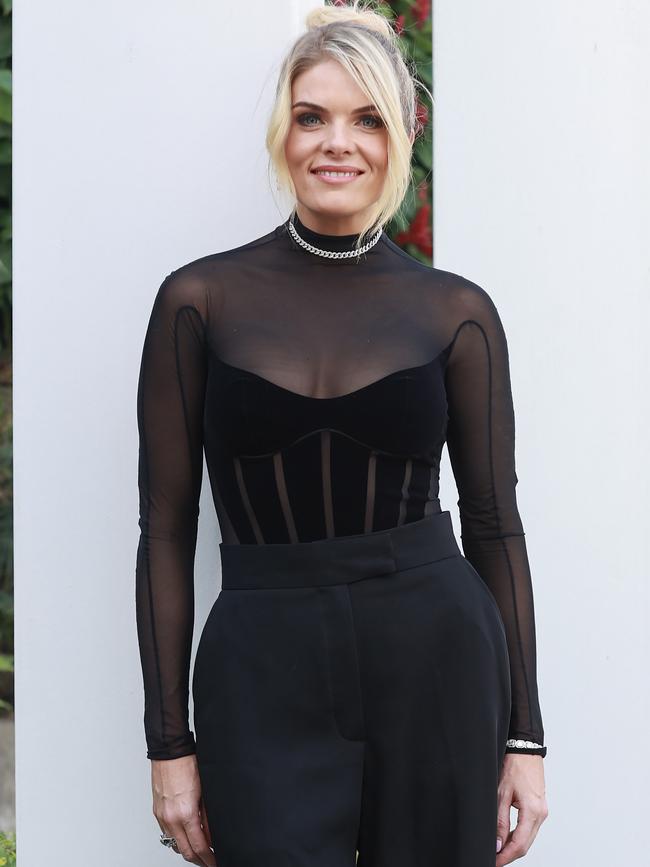
The friend said she would typically receive a message from Molan telling her she was all right, but this time there was no communication.
“I was really worried so I went to his house. I noticed she had a bruise on her neck she was trying to cover up.”
The pair talked about reporting the abuse but nothing happened until one morning Molan called her to say she was at the police station. After another attack she’d decided she needed to tell police but after giving a statement she didn’t want to give evidence against the man.
“I don’t know what she thought was going to happen,” her friend says. “So the police said to me I could give evidence and if I gave a statement they could go and charge him so I did. That was pretty much the end of my friendship with Erin, unfortunately.”
As Molan says: “I was angry at her for hurting him and hurting me. I didn’t realise or appreciate she was trying to save me.”
She is hoping to catch up with her friend soon.
Molan has always known that a police officer anonymously tipped off her parents but she didn’t know her friend had also ensured her parents were aware.
As her friend reveals, she was so worried she called her own dad. He went to visit Jim Molan and told the Major General what was happening to his daughter.
“If my daughter was going through this I’d want to know about it,” he told Jim, who died in January last year.
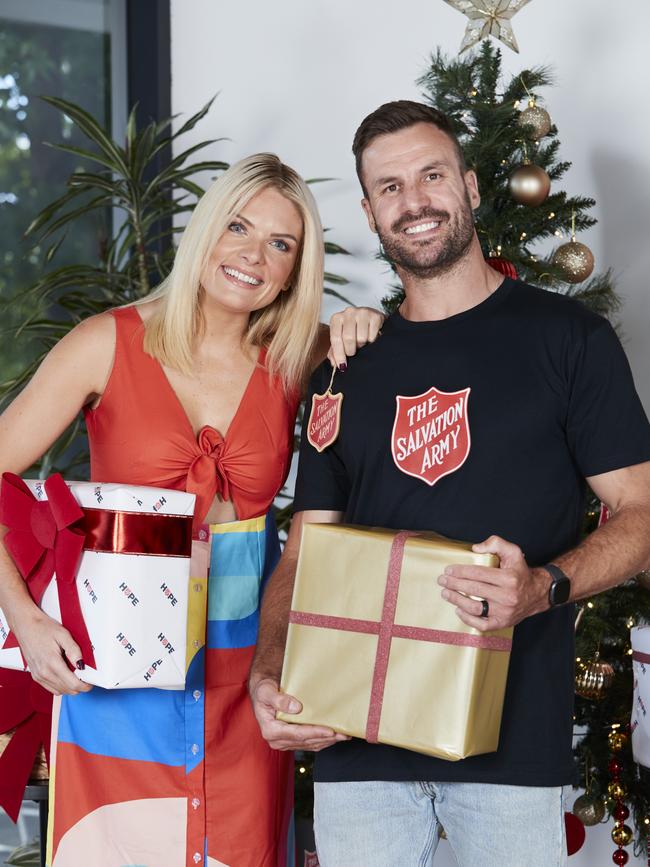
As distressing as it is to discuss, Molan’s mother Anne confirms that she and Jim were told by both the police officer and concerned parent about what was happening.
“Jim felt frustrated and powerless,” she says, adding they both had grave reservations about the man their daughter was dating.
“Occasionally there were visible signs of injury and we would suggest that these might have been intentional injuries and that we could assist her.”
While Anne respects her daughter’s decision to speak out she’s also concerned.
“She was brutally and savagely knocked around mentally, physically and emotionally and I hate the thought that she is reliving any part of that,” she says.
“However I’ve seen what an incredibly effective advocate she is so I admire her commitment to do whatever she might be able to do.
“I share every single Australian’s frustration with the fact that this scourge, this plague, is not being mitigated by any measures that have been taken.”
Anne also believes that her daughter’s deep empathy comes from her experiences: “Erin has spent a lot of time not feeling good about herself and that’s why she’s such a beautiful soul who takes any opportunity to brighten someone else’s day.”
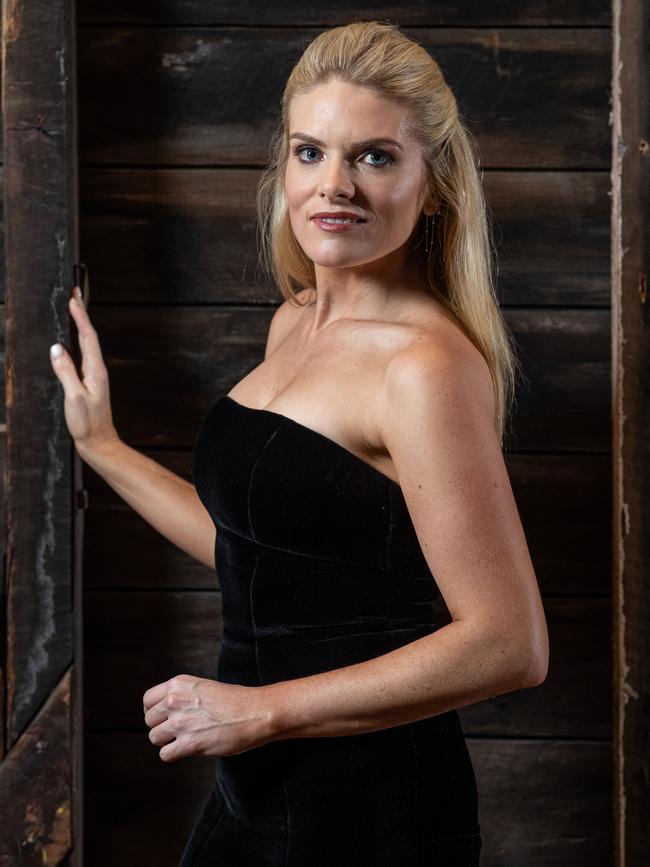
But it wasn’t just her parents who were concerned. Molan’s boss had seen her bruises and, after consulting the HR manager, raised it with her.
It would take several chats but eventually Molan confessed to what was happening.
As her former boss said this week: “Erin showed tremendous courage confiding in me then, and now publicly. I have always known this day would come; the day Erin was ready to speak about her experience with domestic violence.”
Indeed, it was her boss’s concern which ultimately led Molan to finally leave the man.
While her career might have saved her, the former sports reporter and host of Channel 9’s The Footy Show, was not out of the woods.
As she explains, she was so familiar, comfortable even, with the chaos that characterises domestic violence that she would later find herself in another abusive liaison.
The photographs and videos she has documenting the abuse is harrowing.
She believes there’s two reasons the cycle of abuse continues.
First, she thinks perpetrators can spot the vulnerabilities and traits in their victims and, second, she believes women become trapped.
“If you don’t do any work on yourself you have no idea that you’re trapped in this toxic cycle,” she says.
“Your bar is so low that when they punch you once a week instead of every night, you think: ‘Oh God, this guy’s amazing’. Until you recalibrate what you deserve and what is deemed acceptable you’re almost f..ked for life.”
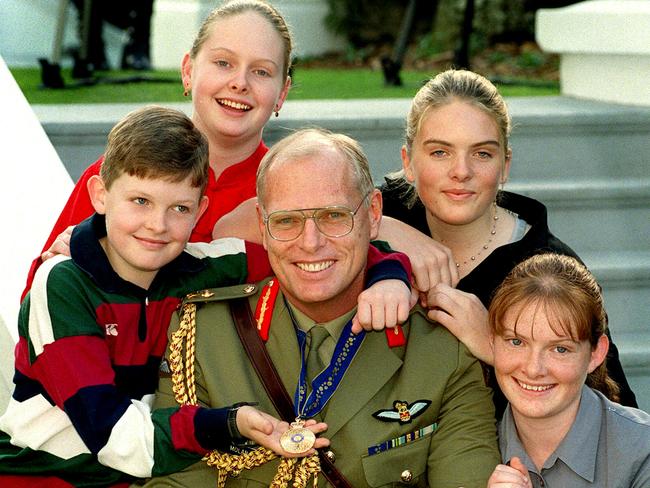
It wasn’t until she began working with a psychologist that Molan started to understand the abuse.
“I was in this permanent fight or flight mode and I existed in a state of fear. I’m a smart person, but when you’re told so many times that you’re to blame for this and that they would never do this with anyone else you start to believe it.”
Therapy has helped her understand what she’s worth, what she deserves and why she might have been drawn to abusive characters. As she says, she grew up in a military family and went to 16 different schools.
“I was always moving around and I was always looking to belong even though I had an incredible family.”
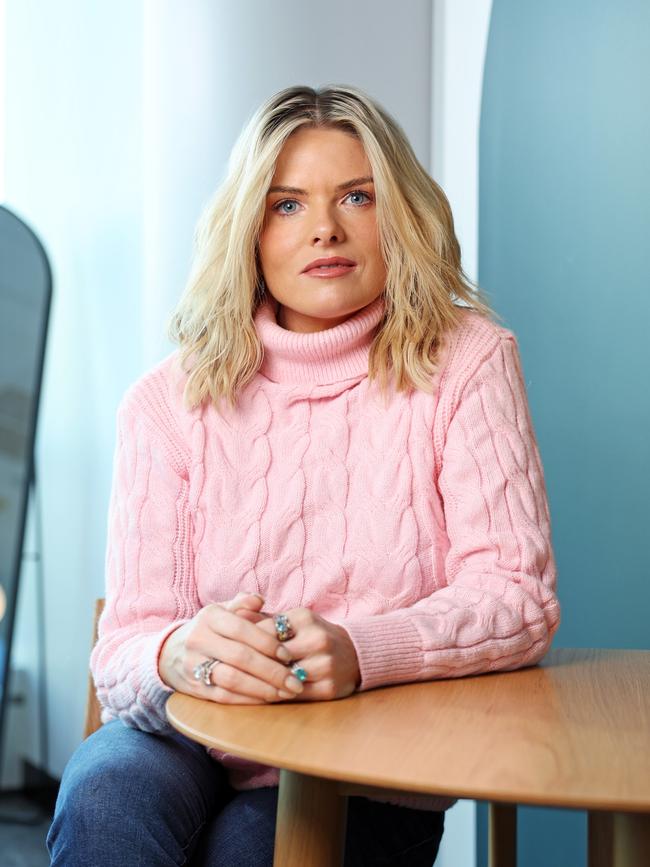
As she examines the domestic violence landscape where royal commissions, new policies and a Minister for Domestic Violence in NSW are struggling to turn around the growing number of cases, Molan believes this newspaper’s rebranding of perpetrators as cowards is spot on.
She also believes more needs to be done to help men when they first feel violent instincts.
“We need to create safe spaces for men who start to have the desire or urge to hurt their partner or children,” she says.
“They need somewhere they can go to say that they’re struggling to control their anger. There needs to be no shame in seeking help when they feel those urges.
“But once they ignore that initial anger and act on those urges is when they become cowards.”
While it’s confronting for her to speak out, Molan wants things to change, not just for her generation but for her daughter’s.
As she says: “I want to worry about my daughter’s first boyfriend breaking her heart, not her bones.”
Looking back her predominant emotion is sadness. “I feel so sad for myself,” she says, her eyes filling with tears.
“I look at the life that I’ve had and the opportunities and the most incredible jobs and experiences that I should have been able to enjoy.
“I’m so sad that nearly all of it was marred by what happened when I got home.”

